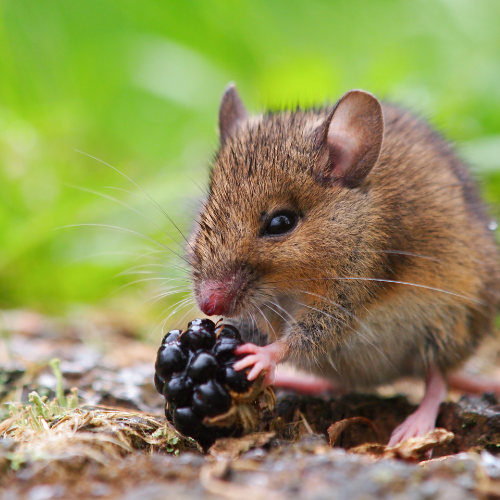
22 Feb Mouse Deterrent Tips
Mice Menace in South Florida
Mice infestations are a common concern for homeowners in South Florida. These small rodents not only cause structural damage but also pose health risks by spreading diseases and contaminating food. In this detailed guide, we’ll delve into various strategies to prevent mice from invading your home and ensure a safe, rodent-free environment.
Mice are known for their agility and ability to enter homes through tiny openings. They often seek shelter indoors during cooler months or when food sources are scarce outside. Identifying and sealing these entry points is a crucial step in preventing mice from accessing your home.
Once inside, mice can quickly establish nests and begin reproducing, leading to a full-blown infestation if not addressed promptly. They are attracted to areas that provide warmth, shelter, and easy access to food, such as kitchens, pantries, and cluttered storage spaces. Regular inspection and maintenance of these areas can help detect signs of mice activity early on.
In addition to the physical damage and health risks, mice infestations can also cause emotional distress for homeowners. The thought of sharing your living space with these unwelcome guests can be unsettling. By following the tips outlined in this guide, you can take proactive steps to keep your home mouse-free and maintain peace of mind.
Understanding Mice Behavior
Mice are resourceful creatures that can enter homes through openings as small as a dime. They are attracted to warm, sheltered areas where food and water are readily available. Common hiding spots include wall voids, under appliances, and in cluttered storage areas.
Mice are also known for their rapid reproduction, with a single female capable of producing up to 60 offspring per year, making early detection and control crucial.
Understanding the signs of a mouse infestation is key to early intervention. Look out for droppings, gnaw marks on furniture or wiring, and scratching noises within walls or ceilings. A musty odor or sightings of actual mice, especially during daylight hours, are clear indicators that it’s time to take action.
Preventive measures such as sealing food in airtight containers and eliminating water sources can make your home less appealing to mice. Proper waste management, including securing trash bins and composting responsibly, will also help deter these pests. By removing their access to food and shelter, you can significantly reduce the likelihood of mice making your home theirs.
Stopping Mice in Their Tracks
To prevent mice from entering your home, conduct a thorough inspection of your home’s exterior. Look for cracks in the foundation, gaps around windows and doors, and holes where utility lines enter. Seal these openings with durable materials like metal flashing, concrete, or wire mesh. Regularly inspect and maintain these barriers to ensure they remain effective.
Mice are primarily attracted to homes in search of food. Keep your kitchen and dining areas clean, promptly wiping up spills and crumbs. Store food, including pet food, in sealed containers made of glass or metal. Ensure that your garbage cans have tight-fitting lids and are emptied regularly. Compost bins should also be well-sealed and located away from your home.
Clutter provides mice with hiding spots and nesting materials. Regularly declutter your home, paying special attention to areas like basements, garages, and attics. Store items in plastic bins with tight lids rather than cardboard boxes. Keep your yard tidy by trimming overgrown vegetation and removing debris where mice could hide.
Combining Natural and Professional Mouse Control
In addition to physical barriers, there are natural methods to deter mice. Peppermint oil, cayenne pepper, and cloves are known to repel mice with their strong scents. Soak cotton balls in these substances and place them in areas where mice activity is suspected. Ultrasonic devices can also be effective, emitting sounds that are uncomfortable for mice but inaudible to humans and pets.
For those who prefer humane solutions, live traps allow for the capture and release of mice without harm. These traps should be checked frequently, and captured mice should be released several miles away from your home to prevent their return.
While DIY methods can be effective, some infestations may require professional intervention. Pest control experts can provide a comprehensive assessment of your home, identifying potential entry points and areas of concern. They can also offer targeted treatments, such as bait stations and traps, to eliminate existing infestations and prevent future ones. Regular professional inspections can be a valuable investment in maintaining a mouse-free home.
Conclusion
In conclusion, protecting your South Florida home from mice requires a combination of vigilance, preventive measures, and, when necessary, professional assistance. By sealing entry points, maintaining cleanliness, and employing natural deterrents, the risk of infestation can be significantly reduced.
Furthermore, understanding mice behavior and being proactive in monitoring for signs of activity are key to early detection and control. Regular inspections and prompt action at the first sign of mice can prevent small problems from escalating into larger infestations.
Finally, don’t hesitate to seek professional help for severe or persistent mouse problems. Pest control experts can provide effective solutions and peace of mind, ensuring your home remains a safe and comfortable environment for you and your family. Remember, a proactive approach to mouse control is the best defense against these unwelcome guests.


No Comments